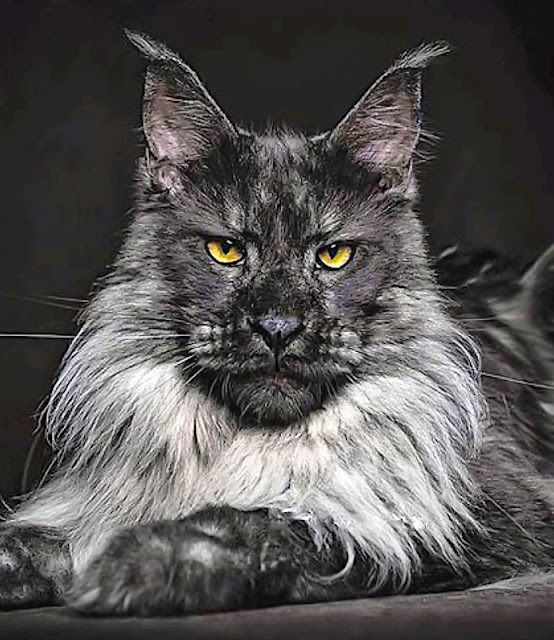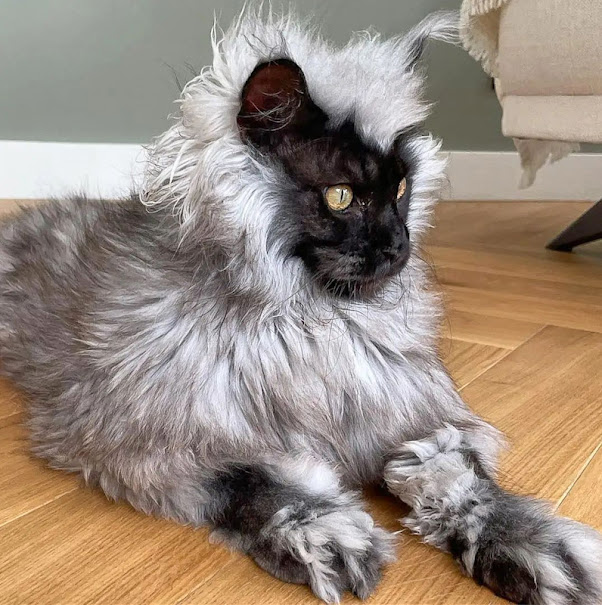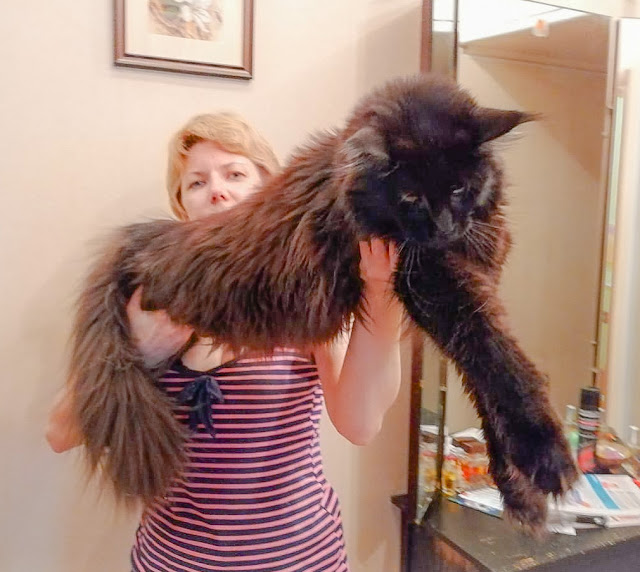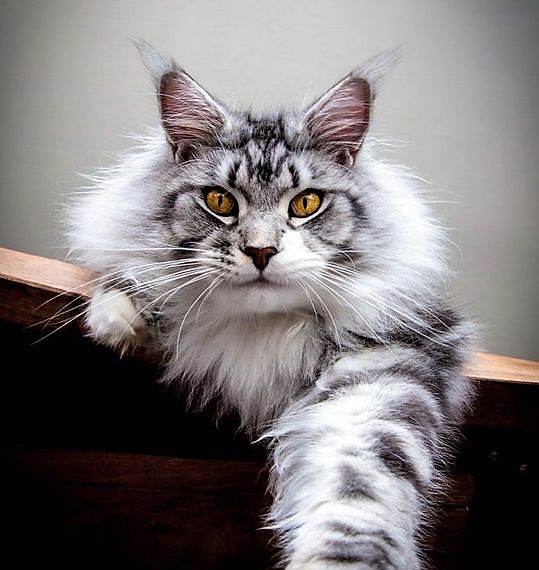Genetic mutation of MYBPC3-A31P linked to HCM in 41.4% of European Maine Coons
The MYBPC3 gene gives instructions to the body of developing Maine Coons to make cardiac myosin binding protein which is part of heart muscle cells. Cardiac MyBP-C is linked to a basic unit of muscle contraction. When the MYBPC3 is mutated, it is associated with a significant increased risk of the development of the well-known heat disease called hypertrophic cardiomyopathy for which the Maine Coon is also well-known to suffer from. It is one of several inherited disease very sadly affecting this impressive a popular cat breed.
 |
| Genes and chromosomes. Image in the public domain. |
The mutated gene is also referred to as 'cardiac myosin-binding protein C3 mutations'.
The mutated MYBPC3-A31P gene was identified in a colony of Maine Coons way back in 2010. So, it is present in the USA.
A study (see title below) was concerned with its prevalence in European Maine Coons. The researchers assessed 3757 cats from different breeds including 2744 Maine Coon cats for this mutation.
The mutated gene was only present in the Maine Coons at a high prevalence of 41.5%. One British Longhair carried the mutation.
The study confirms a high prevalence of HCM in Maine Coons. Other later studies have found similar but slight lower prevalence.
It's perpetuation in the breed is due to breeders who appear to be unwilling to remove HCM sufferers from their breeding programs - blood lines.
Study title: Prevalence of the MYBPC3-A31P mutation in a large European feline population and association with hypertrophic cardiomyopathy in the Maine Coon breed. Published in 2010.
The way the gene causes HCM is very complicated and for specialist scientists this is the finding of a study: "the A31P mutation causes HCM through a poison polypeptide mechanism that disrupts cMyBP-C or myocyte function."
Adopters of the Maine Coon in Europe should be aware of the high prevalence of this heart disease. Some of the largest Maine Coon are bred in Russia. They are technically in Europe in terms of the cat fancy.
Note: the super-large Maine Coons are more likely to suffer from HCM.










Comments
Post a Comment
Please share your Maine Coon experiences.